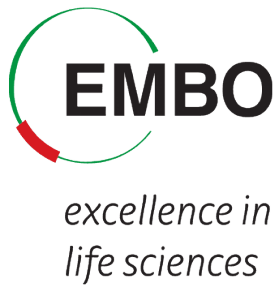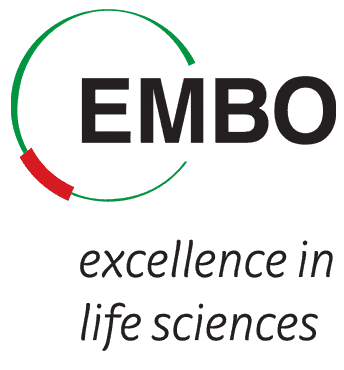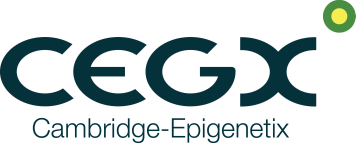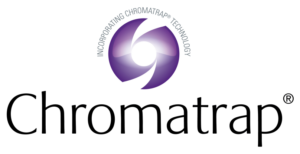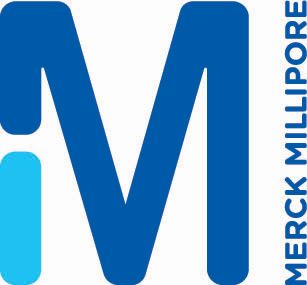Scientific program
Please click here to download the program in pdf>>
Wednesday, October 5
Venue: Hungarian Academy of Sciences
| 14:00- | Registration |
| 16:00-16:30 | Introduction |
| 16:30-17:30 | Keynote Lecture
|
| 17:30-19:00 | Single-cell epigenetics |
| 17:30-18:00 | Alexander van Oudenaarden Revealing novel cell types, cell-cell interactions, and cell lineages by single-cell sequencing |
| 18:00-18:15 | Juliette Dabin Contribution of parental histone dynamics to epigenome stability after DNA damage |
| 18:15-18:30 | Zichuan Liu Daxx and PRC1 control integrity and segregation of paternal chromosomes in mouse early embryos |
| 18:30-19:00 | Mario Nicodemi Hierarchical folding of chromosomes in neuronal differentiation and its link to epigenetics |
| 19:00-19:15 | Coffee break |
| 19:15-20:00 | Single-cell epigenetics |
| 19:15-19:30 | Guillaume Filion HIV and human chromatin |
| 19:30-20:00 | Christoph Bock Epigenetic biomarkers: Ready for clinical diagnostics Sponsored by: |
| 20:00- | Welcome dinner |
Thursday, October 6
Venue: RCNS
| 8:00- | Registration |
| 9:00-10:30 | Metabolism and epigenetics |
9:00-9:30 | Iannis Talianidis H4K20 monomethylation regulates RNA Pol-II elongation and plays an important role in the transcriptional control of hepatic metabolic pathways |
| 9:30-9:45 | Florence Cammas Functions of the HP1 network in liver homeostasis |
| 9:45-10:00 | Tamas Arányi Dynamic DNA methylation changes due to acute metabolic stress in mice |
| 10:00-10:30 | Ueli Schibler Posttranscriptionally controlled ribosome assembly rhythms drive diurnal cycles in global liver mass and macromolecular content |
| 10:30-11:00 | Coffee break & Group photo |
| 11:00-12:00 | Metabolism and epigenetics |
| 11:00-11:15 | Sabine Fraschka Deciphering the transcriptional regulatory network of the human malaria parasite Plasmodium falciparum |
| 11:15-11:30 | Tibor Pankotai Transcriptional outcomes in response to DNA damage |
| 11:30-12:00 | Andrew Pospisilik β-cell PRC2 focuses transcription of select lineage genes and thus prevents de-differentiation and Diabetes in mouse and Man |
| 12:00-13:00 | Lunch break |
| 13:00-14:30 | Developmental epigenetics |
| 13:00-13:30 | Petra Hajkova Epigenetic reprogramming in vivo: How and why? |
| 13:30-13:45 | Pierre-Antoine Defossez A histone mimic within DNA Ligase 1 recruits UHRF1 to sites of DNA replication: implications for DNA remethylation |
| 13:45-14:00 | Ivett Baksa Small RNA-based regulation during temperature adaptation in Arabidopsis |
| 14:00-14:30 | Amos Tanay Single cell approaches to cellular memory |
| 14:30-15:00 | Coffee break Live DEMO Show on the exhibition booth of
|
| 15:00-15:45 | Developmental epigenetics |
| 15:00-15:15 | Alessio Zippo MYC favors the onset of tumorigenesis by inducing epigenetic reprogramming of mammary epithelial cells towards a stem cell-like state |
| 15:15-15:45 | Ferenc Mueller Developmental dynamics of epigenomic features of cis-regulatory elements in early embryo development |
| 15:45-16:15 | Coffee break |
| 16:15-18:00 | Poster viewing |
| 19:30- | Social program (Beer session) Optional program, costs not covered by the registration fee |
Friday, October 7
Venue: RCNS
| 8:00- | Registration |
| 9:00-10:30 | Chromatin architecture |
| 9:00-9:30 | Ana Pombo Genome Architecture Mapping: A spatial approach to map chromatin contacts |
| 9:30-9:45 | Judit Balog Heterozygous mutations in DNMT3B cause derepression of the subtelomeric D4Z4 macrosatellite array and contribute to the development of muscle disease |
| 9:45-10:00 | Lóránt Székvölgyi A Set1C-entric view of meiotic recombination initiation |
| 10:00-10:30 | Leonie Ringrose Beyond memory: The secret life of Polycomb Response Elements |
| 10:30-11:00 | Coffee break |
| 11:00-11:45 | Chromatin architecture |
| 11:00-11:15 | Irene Cantone Cell fusion-mediated reprogramming reveals a link between variability of human X chromosome inactivation in somatic cells and pluripotency-induced gene reactivation |
| 11:15-11:45 | Wouter de Laat Multi-contact 4C reveals multi-way three-dimensional chromatin conformation |
| 11:45-13:45 | Poster session |
| 13:45-20:00 | Sandwiches Free afternoon |
| 20:00- | Gala Dinner – Danube cruise |
Saturday, October 8
Venue: RCNS
| 8:00- | Registration |
| 9:00-10:30 | Transcriptional regulation and epigenetics |
| 9:00-9:30 | Laszlo Tora The ATAC and SAGA coactivator complexes are highly dynamic in the nuclear environment with fast and slow chromatin interacting populations |
| 9:30-9:45 | Salvatore Spicuglia Epromoters define a new class of regulatory elements with dual promoter and enhancer functions in mammals |
| 9:45-10:00 | Chantal Vaury Silencing of transposable elements by PIWI-interacting RNAs |
| 10:00-10:30 | Tamas Fischer Epigenetic control of pervasive transcription and genomic stability |
| 10:30-10:50 | Coffee break |
| 10:50-11:35 | Transcriptional regulation and epigenetics |
| 10:50-11:05 | Bálint L. Bálint Super-enhancers and person-to-person genetic variability in the context of the 1000 Genomes Project |
| 11:05-11:35 | Michaela Frye RNA methylation in stem cells and cancer |
| 11:35-13:00 | Lunch break and poster viewing |
| 13:00-14:30 | Transgenerational inheritance |
| 13:00-13:30 | Vincent Colot Transgenerational Epigenetics: Lessons from Arabidopsis Sponsored by:  |
| 13:30-13:45 | Aman Zare Drosophila gut microbiome is involved in transgenerational inheritance of acquired traits |
| 13:45-14:00 | Kallayanee Chawengsaksophak The epigenetic modifier Fam208a is essential for mouse gastrulation |
| 14:00-14:30 | Erica Watson How abnormal folate metabolism haunts our descendants |
| 14:30- | Poster prizes and concluding remarks |
Posters
P-01 | Hakan Akca |
P-02 | Caroline Bacquet |
P-03 | Marine Baptissart |
P-04 | Raymond Blind |
P-05 | Laszlo Bodai |
P-06 | Dóra Bojcsuk |
P-07 | Pedro Castelo-Branco |
P-08 | Vin Yee Chung |
P-09 | Sébastien Coassolo |
P-10 | Ixchelt Cuaranta Monroy |
P-11 | Luiza Diniz Ferreira Borges |
P-12 | Edina Erdős |
P-13 | Sercan Ergun |
P-14 | Sercan Ergun |
P-15 | Dominique Fauvin |
P-16 | Erfaneh FirouziNiaki |
P-17 | Erfaneh FirouziNiaki |
P-18 | Anna Fortuny Gonzalez |
P-19 | Marybeth Francis |
P-20 | Zsuzsanna Gaál |
P-21 | Kay Gully |
P-22 | Anca-Sarmiza Gültekin-Tigan |
P-23 | Attila Horváth |
P-24 | Mette Jacobsen |
P-25 | Aeri Kim |
P-26 | Gergő Kovács |
P-27 | Janina Ličytė |
P-28 | Cha Min Ho |
P-29 | Celine Morey |
P-30 | Iraia Muñoa Hoyos |
P-31 | Gergely Nagy |
P-32 | Péter Nánási |
P-33 | Péter Nánási |
P-34 | Csilla Emese Németh |
P-35 | Zsofia Nemoda |
P-36 | Dragos Nica |
P-37 | Tünde Nyiko |
P-38 | Colleen O’Ryan |
P-39 | Colleen O’Ryan |
P-40 | Lilla Ozgyin |
P-41 | Luca Pagliaroli |
P-42 | Luca Pagliaroli |
P-43 | Cristina Popescu |
P-44 | Petra Priščáková |
P-45 | Vanda Repiská |
P-46 | Helene Royo |
P-47 | Hussein Sabit |
P-48 | Osama Said |
P-49 | Kristine Salmina |
P-50 | Rita Seeböck |
P-51 | Ioan-Ovidiu Sirbu |
P-52 | Ioan-Ovidiu Sirbu |
P-53 | Gordana Supic |
P-54 | Gábor Szabó |
P-55 | Agnes Tantos |
P-56 | Violeta Trusca |
P-57 | Borbála Vető |

